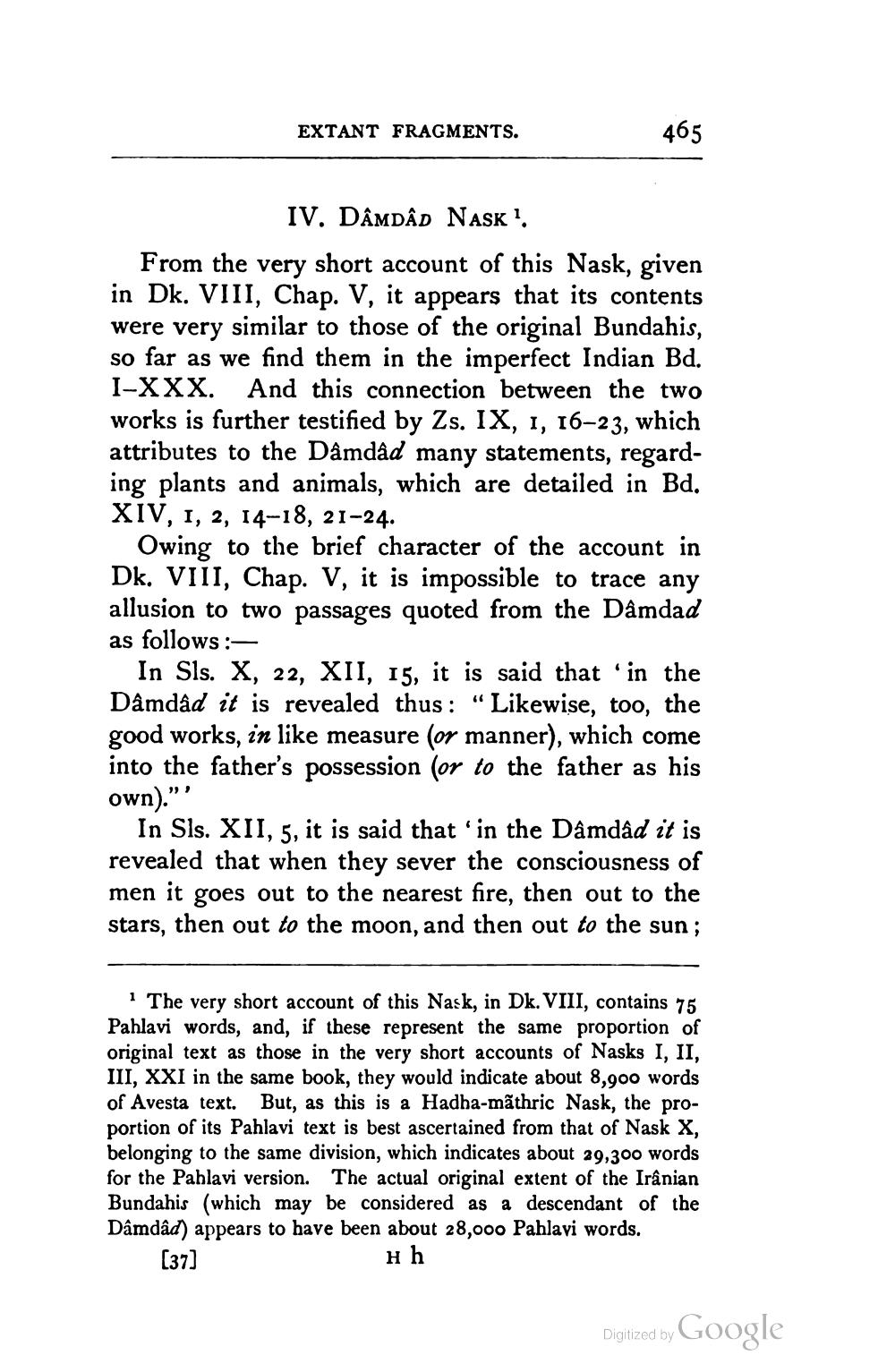________________
EXTANT FRAGMENTS.
465
IV. DÂMDÂD NASK ? From the very short account of this Nask, given in Dk. VIII, Chap. V, it appears that its contents were very similar to those of the original Bundahis, so far as we find them in the imperfect Indian Bd. I-XXX. And this connection between the two works is further testified by Zs. IX, 1, 16-23, which attributes to the Dâmdâd many statements, regarding plants and animals, which are detailed in Bd. XIV, 1, 2, 14-18, 21-24.
Owing to the brief character of the account in Dk. VIII, Chap. V, it is impossible to trace any allusion to two passages quoted from the Dâmdad as follows:
In Sls. X, 22, XII, 15, it is said that in the Dâmdâd it is revealed thus: “Likewise, too, the good works, in like measure (or manner), which come into the father's possession (or to the father as his own).”'
In Sls. XII, 5, it is said that in the Dâmdâd it is revealed that when they sever the consciousness of men it goes out to the nearest fire, then out to the stars, then out to the moon, and then out to the sun;
The very short account of this Nask, in Dk. VIII, contains 75 Pahlavi words, and, if these represent the same proportion of original text as those in the very short accounts of Nasks I, II, III, XXI in the same book, they would indicate about 8,900 words of Avesta text. But, as this is a Hadha-mãthric Nask, the proportion of its Pahlavi text is best ascertained from that of Nask X, belonging to the same division, which indicates about 29,300 words for the Pahlavi version. The actual original extent of the Irânian Bundahis (which may be considered as a descendant of the Damdâd appears to have been about 28,000 Pahlavi words. [37]
Hh
Digitized by Google




